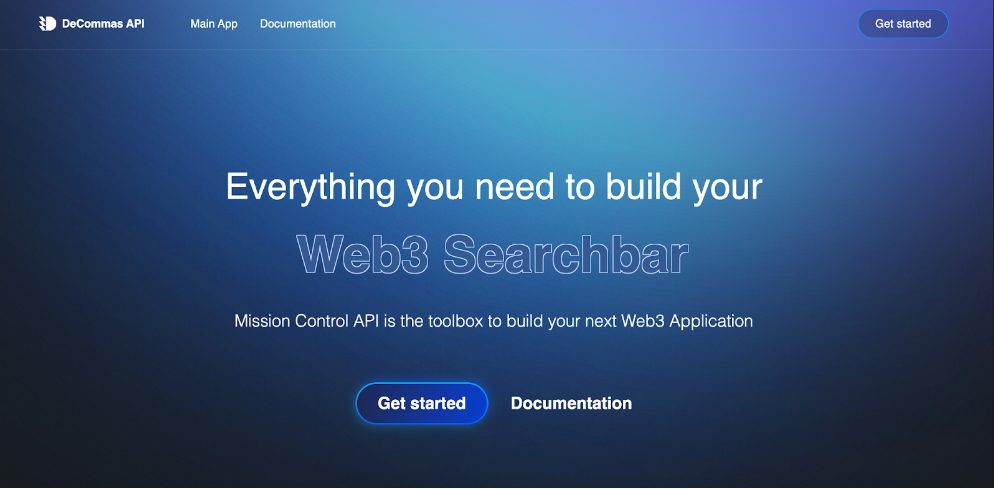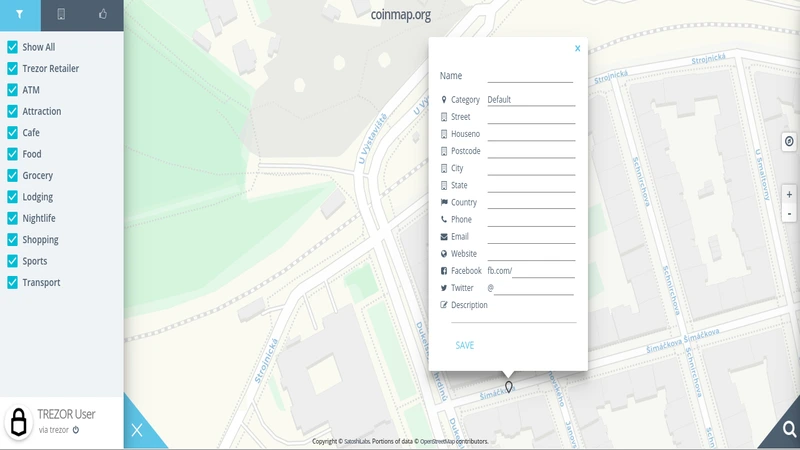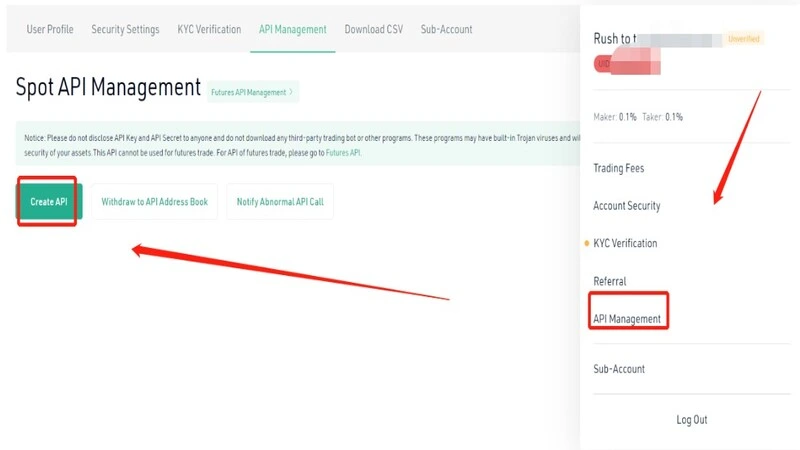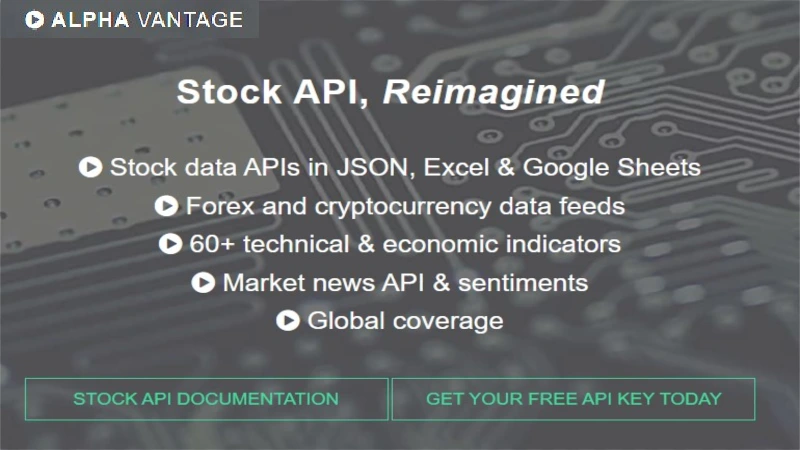The demand for crypto projects tends to increase with time. Let’s check out some of the best crypto APIs.
Before we get to know about crypto APIs, let’s have a look at APIs first. An Application Programming Interface (API) is a software solution that allows the interaction of two or more applications. APIs are commonly used for room booking, food ordering, payment processing, and more.
Cryptocurrency APIs also function like the APIs mentioned above. The main difference is that crypto APIs interact with various crypto markets and exchanges. First, it’s essential to know about data collection to understand APIs clearly.
Data Collection and Its Importance
Data collection is the backbone of every API. Simply put, data collection involves a step-by-step process of gathering information related to a specific subject. Here, in the case of crypto APIs, the collected data is related to various crypto projects and currencies associated with them.

APIs collect data from credible sources, process it, and store it. Later, the stored data is analyzed and organized according to the individual’s or organization’s use case.
Manual collection of massive data is practically impossible, so APIs have different methods for collecting relevant data. Keeping that in mind, let’s check out some alternative ways of data collection:
- Data importing: Data import is simply a process of copying data from one program or source to another. Data scientists use various methods to import necessary data from a database, file, or other sources.
- Downloading data from a resource: In the case of data download, a bulk quantity of data is stored on a storage device as a permanent copy. This stored data is later used by data developers or scientists for a prolonged period.
Benefits of Web APIs
You might think, but how will I benefit from crypto web APIs? All right, let’s shed some light on it.
- Whether you’re a crypto trader, developer, analyst, or enthusiast, APIs help smoothen your crypto journey.
- If you are a developer, you can use crypto APIs to build a trading bot, business solutions, or payment platforms.

- Similarly, suppose you are someone who trades or invests in cryptocurrencies. You can also use crypto APIs to track your portfolio, place buy or sell orders, and much more. Apart from that, APIs allow you to analyze charts, check live crypto prices, or set multiple price alerts.
- APIs are crucial in improving and increasing productivity by enhancing fast and more straightforward software development. For instance, developers don’t have to waste time and energy building from scratch.
- Software development costs are significantly reduced as APIs take care of important data imports and downloads.
Having discussed APIs and their relevance in the crypto space, let’s dive in and check the best crypto APIs.
CoinGecko API
We’ll begin the list with CoinGecko API, as it’s one of the most budget-friendly crypto APIs. If you want to build a project on a tight budget, you can consider CoinGecko API.

CoinGecko API provides access to essential crypto data equally beneficial for crypto developers, traders, and scientists. The data provided includes the live market price of cryptocurrencies, tickers, trading volume, historical data, trading exchange details, and technical charts. Another exciting factor is that CoinGecko provides all this data without asking for a dime.
CoinGecko has become one of the prominent data providers for crypto assets since its inception in 2014. In addition, the users of CoinGecko API get the privilege of obtaining data for more than 12,000 cryptos listed on 500+ crypto exchanges.
All data is available to the public with a limited rate of 50 calls per minute, which is quite enough for most crypto use cases. Suppose you want more rate limits per minute, priority email support, and Slack chat support. In that case, you can also choose paid CoinGecko API plans. The paid plans start at $103/month when billed annually.
Finage

Finage stands at the forefront of cryptocurrency data services, offering unparalleled access to real-time and historical data across the most active cryptocurrency exchanges (CEXs) and decentralized exchanges (DEXs). With a robust infrastructure that aggregates data from multiple sources, Finage ensures the highest levels of accuracy and quality in its data offerings, encompassing over 5,300 symbols and 8 years of historical insights.
Designed to meet the demands of developers, traders, and financial analysts, Finage’s cryptocurrency APIs deliver the most current and comprehensive market data. Through RESTful APIs and WebSocket connections, users can seamlessly integrate Finage’s data into their applications, benefiting from real-time updates and in-depth market analysis.
The versatility of Finage’s APIs extends to providing a wide array of metrics, such as price, volume, market cap, and more, for a thorough understanding of the cryptocurrency market dynamics. This extensive coverage allows users to retrieve detailed information on specific cryptocurrencies as well as broader market trends, aiding in strategic decision-making and analysis.
Finage is committed to data excellence, with a dedicated team continuously monitoring the markets to ensure information is both up-to-date and reflective of real-time fluctuations. This commitment is coupled with user-friendly documentation and free trials, making integration straightforward and accessible.
For those in search of reliable, high-quality cryptocurrency data, Finage offers a comprehensive solution. Whether for tracking real-time market movements or analyzing historical trends, Finage’s APIs provide the critical data necessary for staying informed and making well-founded decisions in the cryptocurrency space.
DeCommas
DeCommas Mission Control API suits a wide variety of crypto use cases, including web3 wallets, portfolio tracking, tax & accounting, GameFi, dApps, decentralized exchanges, bridge aggregators, etc. Currently, this API gives access to Ethereum, Polygon, Arbitrum, Avalanche, Optimism, and more networks.

It allows you to fetch native token balances, transaction history per address, NFT holdings and metadata per address, track positions within supported DeFi protocols, track historical values, etc.
This API provides quick access to the indexed blockchain data with response times of under 250ms per request with its Datalayer API. Its execution API allows developers an effortless DeFi protocol integration via its transaction-building layer.
DeCommas is developer-friendly with its flexible APIs and SDK. Lastly, there are options to get started for free and later shift to its cost-effective paid plans.
Coinmap REST API
In recent years, there has been a rise in the acceptance of cryptocurrencies for payments. So, suppose you are a developer who likes to build an application that tracks places that accept crypto payments. In that case, Coinmap REST API helps to provide you with important data.

Coinmap REST API has a vast database with information about thousands of crypto-accepted merchants, shops, grocery stores, cafes, and more. The most impressive features of this API are that it is simple to use doesn’t require any authorization, and is developed with a flat data structure with a straightforward data format.
Data developers can list their venues using appropriate longitude, latitude, categories, and filters. Apart from that, Coinmap REST API provides options to create, update and even delete venues according to suitable use cases.
Moreover, Coinmap REST API doesn’t charge developers for using their data. The only condition they put forward is to provide credit for Coinmap and its contributors for the data used.
CoinMarketCap API
CoinMarketCap API provides access to data related to thousands of listed cryptocurrencies across over 300 global exchanges. Apart from that, their API allows the development of software or applications to backtest trading strategies, live price alerts, and charting tools. Also, the data can be used to run experiments with past crypto prices and to track portfolios.

The major drawback of this API is that the data usage is limited. In other words, it costs you more if you want to access more data. The free access only provides you with 10,000 calls per month, without any historical data.
The paid plans of CoinMarketCap API start at $29 per month when billed annually. This plan provides 40,000 calls per month with a 1-month historical conversion. You can also choose other high-paid plans if you want more call credits.
Coinlayer API
Coinlayer API provides accurate live price data for more than 385 cryptocurrencies. The improved algorithm developed by Coinlayer API helps developers use crypto data more efficiently. Moreover, the data is collected from over 25 prominent crypto exchanges.

The primary services provided by Coinlayer API to crypto developers include:
- Live data: Provides the latest crypto exchange rate data.
- Time frame data: Provides filtered data within a specific time frame.
- Historical data: Allows checking data from a previous date.
- Change data: Delivers data related to rate fluctuations at a specific time.
- Conversion endpoint: Used to convert the rates of cryptos with target currencies.
- List endpoint: Provides a list of cryptos and target currencies.
The free plan provided by Coinlayer API provides 100 requests per month with hourly updates and historical data. Try using paid packs to access more requests, target currencies, quicker updates, etc. Coinlayer API’s paid pack starts at $9.99 per month.
Coinpaprika API
Coinpaprika API is another crypto API that provides data on thousands of cryptocurrencies. This API has a list of more than 8,000 crypto assets from 360 exchanges.

Developers can use Coinpaprika API for data related to 27,000 crypto trading pairs. Apart from that, Coinpaprika API has one of the fastest response times, with a median latency of 337 ms.
Coinpaprika API was purposefully designed for developers. The main aim behind the creation of their API is to create a user-friendly interface for crypto developers and scientists. For instance, developers can use Coinpaprika API’s open-source libraries, including popular programming languages.
The free Coinpaprika API plan provides the user with 25,000 calls per month for 2,500 crypto assets. But the daily and hourly historical data analysis is limited to 1 year and 1 day, respectively. If you are a serious crypto developer, go for their paid plans, starting at $99 per month.
Coinbase API
Flexibility is a significant factor for a crypto developer while building an application or project. Coinbase API comes into the picture by providing flexible and secure features.

Coinbase API technology is developed using Node.js and supports popular cryptos such as Bitcoin, Ethereum, Bitcoin Cash, and Litecoin. Moreover, you can create crypto wallets and addresses for these cryptos.
Coinbase API doesn’t compromise on its real-time notifications and market monitoring. Also, historical data is provided for further price analysis.
As a developer, if you need only up to 10,000 requests per hour, you can use CoinbaseAPI for free. For more advanced features, you can choose a premium option like CoinbasePro. CoinbasePro provides exciting features, such as programmatic trading.
Cryptowatch APIs
Cryptowatch APIs consist of two different APIs; REST API and WebSocket API.
REST API provides access to real-time API to live stream cryptocurrency market data. Also, the developers can use data from thousands of crypto markets and 23 exchanges. In addition to that, REST API also helps to fetch live prices, market statistics, order books, candlestick data, and recent trades.

The cryptocurrencies supported by Cryptowatch Market Data REST API include Bitcoin, Litecoin, Ethereum, Monero, Dash, Ripple, and many more.
Crypto developers can stream real-time crypto market data from 26 major exchanges using WebSocket API. The official software development kits (SDKs) maintained by WebSocket API include Node.js, Golang, and Python. Apart from that, if you are a developer who wants to build on a different SDK, Cryptowatch API also provides support for such developers.
Suppose you would like to stick to their free services. In that case, you can use charts, track portfolios, chat with community members, and customize your terminal. But if you want to access premium services provided by Cryptowatch APIs, you need to pay in the form of credits using credit cards or Bitcoin.
Nomics API
Nomics API is another prominent data provider with access to 400K markets at the time of writing. In addition to that, Nomics API’s database is extended across 795 exchanges and over 53K crypto tokens.

Nomics API allows crypto developers to create charting platforms, mobile apps, strategy backtests, trading bots, pricing websites, and portfolio valuation tools. Apart from that, you can also benefit from the extensive library of crypto market data.
The average API response time is just 51 ms, allowing developers to access near-real-time market data. The default free services Nomics API provides only one request per second. You need to choose commercial paid plans to access more requests per second.
CoinAPI
Are you looking for APIs that provide real-time crypto market data and prices? Great! In that case, CoinAPI will be the best fit for you.

The database of CoinAPI consists of 507 TB of market data history. Apart from that, this API supports over 16K crypto assets. All the available data is collected from 337 crypto exchanges with 46K+ market data updates per second.
Crypto developers can very well utilize the well-documented data from CoinAPI. All these data are available in CSV, XML, or JSON formats.
If you are developing an application that requires only 100 daily requests, you can stick to CoinAPI’s free plan. Otherwise, you can go with their paid monthly subscription, which starts at $79.
KuCoin API
Are you planning to use crypto transaction APIs? Then it would be best if you give the KuCoin API a shot.
KuCoin API’s design allows easy access to trade on crypto markets. The exchange rates provided also work well with both mobile and web-based applications. The official SDKs available on KuCoin API include Java, Go, PHP, Python, Level3, and Node.js.

The wide variety of data of cryptocurrencies available on the KuCoin API helps very well whether you are a crypto scientist or developer. Developers can use the stable data available on KuCoin API to build algo trading applications.
The KuCoin API offers free access to their data library. The only limitation is that your call request has a limit of 1,800 calls per minute.
NOWNodes API
Suppose you are a developer aiming to access the most popular blockchains. In that case, NOWNodes API can help you to work magic for you. With this blockchain-as-a-service-based API, you can access explorers and full nodes.

The major features of NOWNodes API are:
- All explorers and full nodes are available in one place.
- Reliable and fast connection with a connectivity speed of 1GB per second.
- Nodes are appropriately monitored regularly.
- High-quality infrastructure.
- Provides 24/7 service.
NOWNodes API provides a free pack of up to 5,000 daily requests and one API key. You can choose paid packs for more daily requests according to your use case.
Alpha Vantage API
Alpha Vantage API is one of the Python-based stock APIs. Using this API, a crypto data developer or scientist can avoid manual, tedious stock data extraction.

With the help of Alpha Vantage API, you can access historical data, real-time stock data, multiple time-series data, and volume statistics, to name a few. A developer can customize the data to create a crypto-based application or platform for their target audience.
Alpha Vantage API provides services based on various time series. The time series includes intraday, daily, weekly, and monthly. The vast majority of Alpha Vantage API’s endpoints are available for free. If a developer needs more features, then it’s better to select premium monthly plans starting at $49.99.
Final Thoughts
Crypto APIs are flexible and powerful tools that help you build crypto projects. All the above-discussed APIs are the best-rated ones, and it’s entirely up to you to decide which APIs best suit your purpose.
A practical way to select the best API is to make a checklist. The checklist must include the functions, budget, additional features required, and data updates per second. Also, you can list more according to your project requirements.

